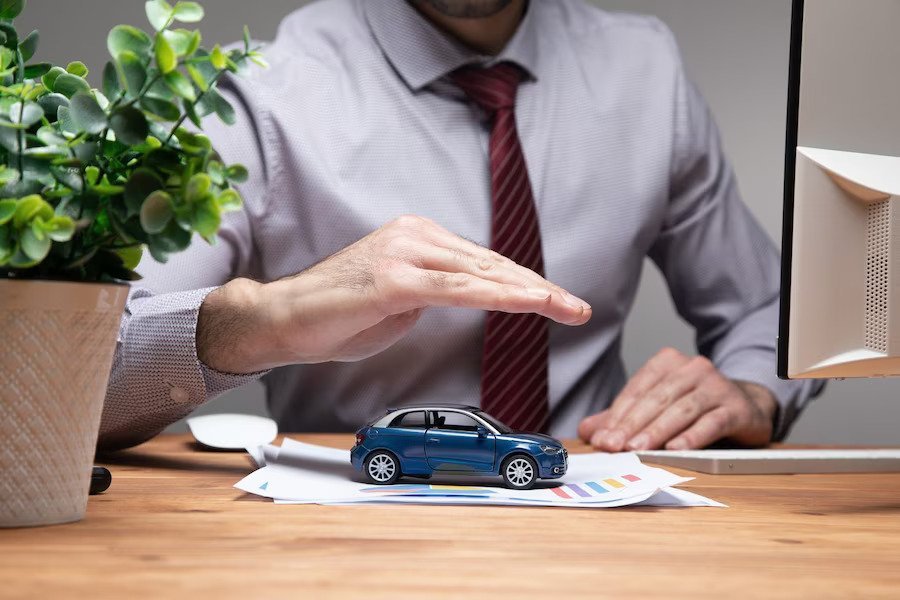Gap Insurance : In the vast landscape of insurance products, one term that often pops up is “gap insurance.” While it might sound like another complex financial term, gap insurance is actually a valuable addition to your insurance portfolio, offering a safety net that can protect you from unforeseen financial burdens in the event of a vehicle accident or theft. In this article, we’ll delve into the intricacies of gap insurance, what it covers, and why it’s crucial, particularly for those who have financed or leased vehicles.
What is Gap Insurance?
Gap insurance, also known as Guaranteed Asset Protection insurance, is a type of coverage that bridges the gap between the actual cash value of your vehicle and the remaining amount you owe on your auto loan or lease. This discrepancy often arises because of the rapid depreciation of a vehicle’s value in the initial years of ownership. In the unfortunate event that your vehicle is totaled or stolen, regular auto insurance would typically cover only the current market value of the car. However, this amount might fall short of what you still owe to the lender or leasing company. This is where gap insurance steps in.
How Does Gap Insurance Work?

To illustrate the working of gap insurance, let’s consider a scenario. Imagine you’ve recently purchased a brand-new car for $30,000, and a year later, it gets stolen. Your auto insurance provider assesses the value of the car at the time of the theft and determines it to be $24,000 due to depreciation. Meanwhile, you still owe $28,000 on your car loan. Without gap insurance, you would be responsible for covering the $4,000 difference between the insurance payout and the remaining loan amount.
Gap insurance prevents this financial setback by covering that $4,000 gap. This means that you won’t have to dip into your savings or find other sources of funding to settle the outstanding loan balance. Instead, your gap insurance policy will take care of it, allowing you to start fresh without the burden of a substantial debt.
Who Needs Gap Insurance?
Gap insurance is particularly beneficial for individuals who:
- Lease Vehicles: Since lease agreements often come with mileage restrictions and strict maintenance requirements, vehicles can experience higher rates of depreciation. Gap insurance provides peace of mind to lessees by ensuring they won’t be stuck with a hefty bill if the car is stolen or totaled.
- Finance a Vehicle: New cars can lose up to 20% of their value within the first year due to depreciation. If you’ve financed a vehicle with a small down payment, you could find yourself owing more than the car’s actual value. Gap insurance safeguards you from being caught in a debt trap in case of an accident.
- Purchase a High Depreciation Vehicle: Some vehicles are more prone to rapid depreciation than others. If you’re buying a car that’s known for losing value quickly, having gap insurance can provide essential financial protection.
Gap Insurance vs. Comprehensive Insurance
It’s essential to understand that gap insurance is not a substitute for comprehensive insurance. While gap insurance covers the difference between the loan amount and the car’s value, comprehensive insurance covers damages or losses resulting from accidents, theft, natural disasters, and more.
How To Obtain Gap Insurance

Gap insurance is available from a variety of sources, including auto dealerships, insurance companies, and even specialized gap insurance providers. When considering gap insurance, it’s wise to compare quotes from different sources to ensure you’re getting the best deal.
Conclusion
In the world of insurance, where uncertainty can lurk around every corner, gap insurance shines as a solution to a specific yet critical problem. It offers individuals who are leasing or financing vehicles the peace of mind that they won’t be burdened with a significant financial gap in case of a mishap. While it might not be necessary for everyone, those who fall into the aforementioned categories can greatly benefit from having gap insurance in their arsenal of financial safeguards.
Q1. Does gap insurance cover other types of vehicle damage?
No, gap insurance specifically covers the gap between your loan or lease balance and the vehicle’s actual cash value in cases of theft or total loss. It does not cover regular vehicle repairs or maintenance.
Q2. Can I purchase gap insurance at any time?
Gap insurance is often most effective when purchased at the time of buying or leasing a vehicle. Some insurance providers may also allow you to add it to an existing policy, but it’s advisable to inquire about the timing with your provider.
Q3. Can I cancel gap insurance if I no longer need it?
Yes, you can usually cancel gap insurance if you find that you no longer need it. Check with your insurance provider about their cancellation policy and any potential refunds.
Q4. Is gap insurance the same as comprehensive insurance?
No, gap insurance and comprehensive insurance are different. Comprehensive insurance covers damages resulting from accidents, theft, natural disasters, and other events, while gap insurance specifically covers the gap between the car’s value and the loan/lease balance.
Q5. Does gap insurance cover the entire remaining loan or lease balance?
Gap insurance typically covers up to a certain percentage of the vehicle’s actual cash value. The exact coverage limit can vary depending on the insurance provider and policy term
Source Image : Freepik.com




